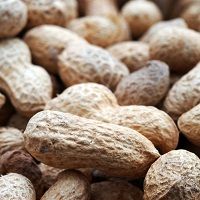Peanuts Ejected from Some Baseball Games
The increasing prevalence of food allergies (along with increasing awareness of the dangers associated with those allergies) has famously led to food restrictions in schools and on commercial airlines. The trend has now spread to a venue that's strongly associated with the enjoyment of fresh roasted peanuts: baseball stadiums.

The increasing prevalence of food allergies (along with increasing awareness of the dangers associated with those allergies) has famously led to food restrictions in schools and on commercial airlines. The trend has now spread to a venue that’s strongly associated with the enjoyment of fresh roasted peanuts: baseball stadiums.
A majority of major league teams and a number of minor league teams are holding 1 or more “peanut sensitive” games during the 2015 calendar year. Practices vary among the teams. Some advertise peanut restrictions at a handful of games. Others have limited them to a single night.
None of the teams has made the commitment to ban peanuts throughout an entire stadium, even for a single game, but several have barred them in a significant number of seating sections. Others have designated a number of luxury boxes to be peanut-free zones and reserved them exclusively for fans with allergies (and their families), who can then get luxury box seats at roughly the same cost as normal seats.
The second strategy provides far fewer seats in the restricted zone. However, by limiting attendance to people with allergies and keeping them mostly indoors, it reduces the chance of accidental exposure from fans who do not realize an area is peanut-free and from peanut dust that’s blown around the stadium.
No matter where a team chooses to place its peanut-free sections, stadium personnel give that section an extra thorough cleaning before the game, remove peanut products from the nearby concession stands and put up signs to notify other fans of the event.
Specific cleaning practices vary, but they all involve far more than a few extra strokes of the broom. A story in Reuters reported that the stadium crew in Missoula, Montana, spent 5 hours eliminating allergens in 1 section of their stadium before an Osprey home game.
Both major and minor league baseball teams have actually been holding peanut-sensitive games for several years now, but the number of participating teams and the number of games per year has been steadily growing.
Of course, peanut-free sections are not enough to assure the safety of people with the most severe allergies. Baseball stadiums typically abound with peanuts and peanut shells, and airborne peanut particles can certainly blow from 1 part of a stadium to another.
That said, the initiative has won major and minor league baseball plaudits from Food Allergy Research and Education (FARE), along with individual advocates and many parents whose children suffer from peanut allergies.
Neither the nation’s other professional sports leagues nor the NCAA have systematically followed baseball’s lead on the peanut issue, though a handful of individual colleges have done so. (Northwestern University has probably gone the furthest to accommodate those with allergies. It went completely peanut-free at its first 3 home football games last year.)
A number of advocacy groups, many of them comprised of parents whose children have severe allergies, are pushing for peanut-free days and/or nights at a wide variety of venues. Such efforts have struggled to date, but the experience with in baseball suggests some hope.
After all, if baseball can carve out peanut-free zones, even for a few nights a year, then it surely must be possible to win similar victories at other venues.
Readers can go to Peanut Free Baseball for information about which teams offer peanut-sensitive games and when they offer them.